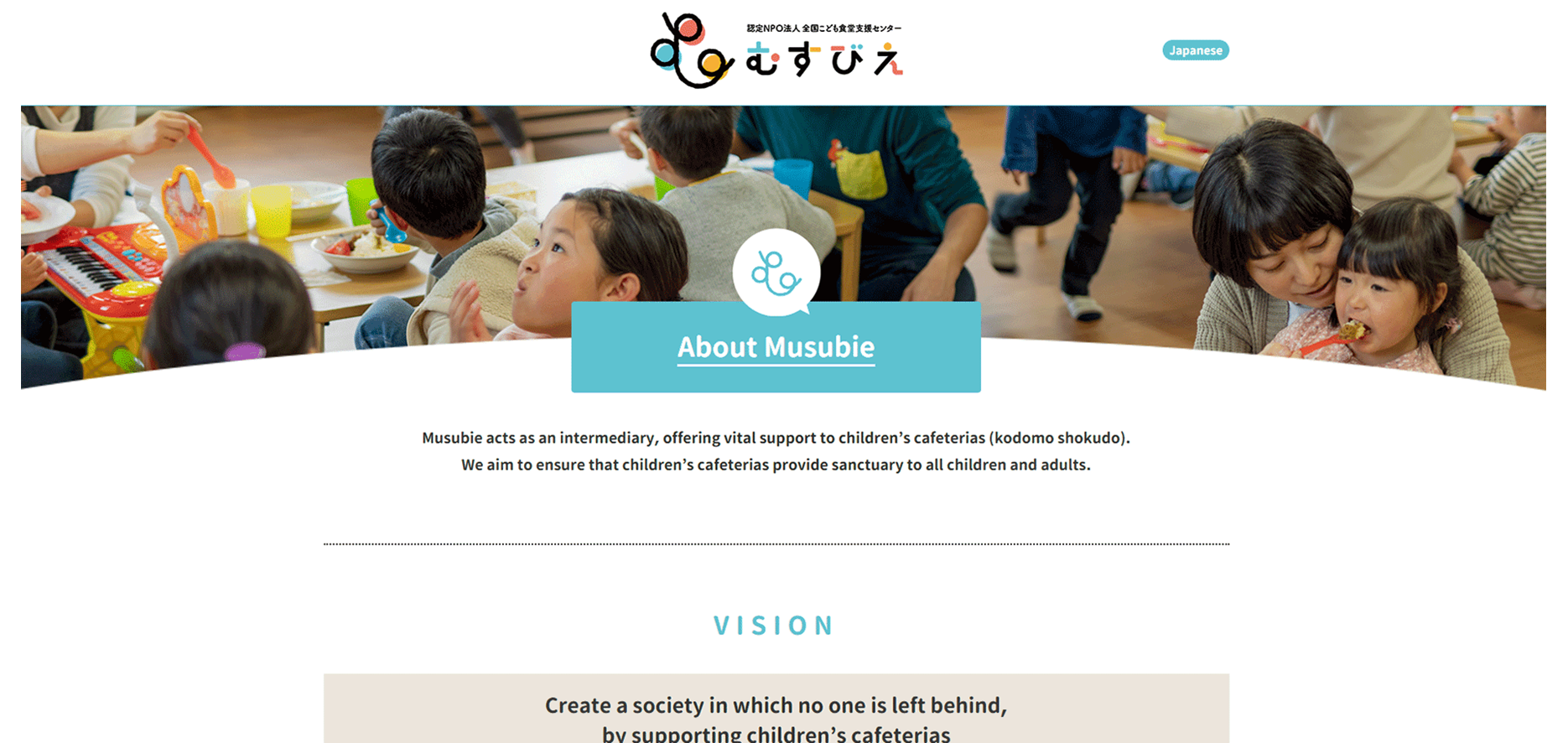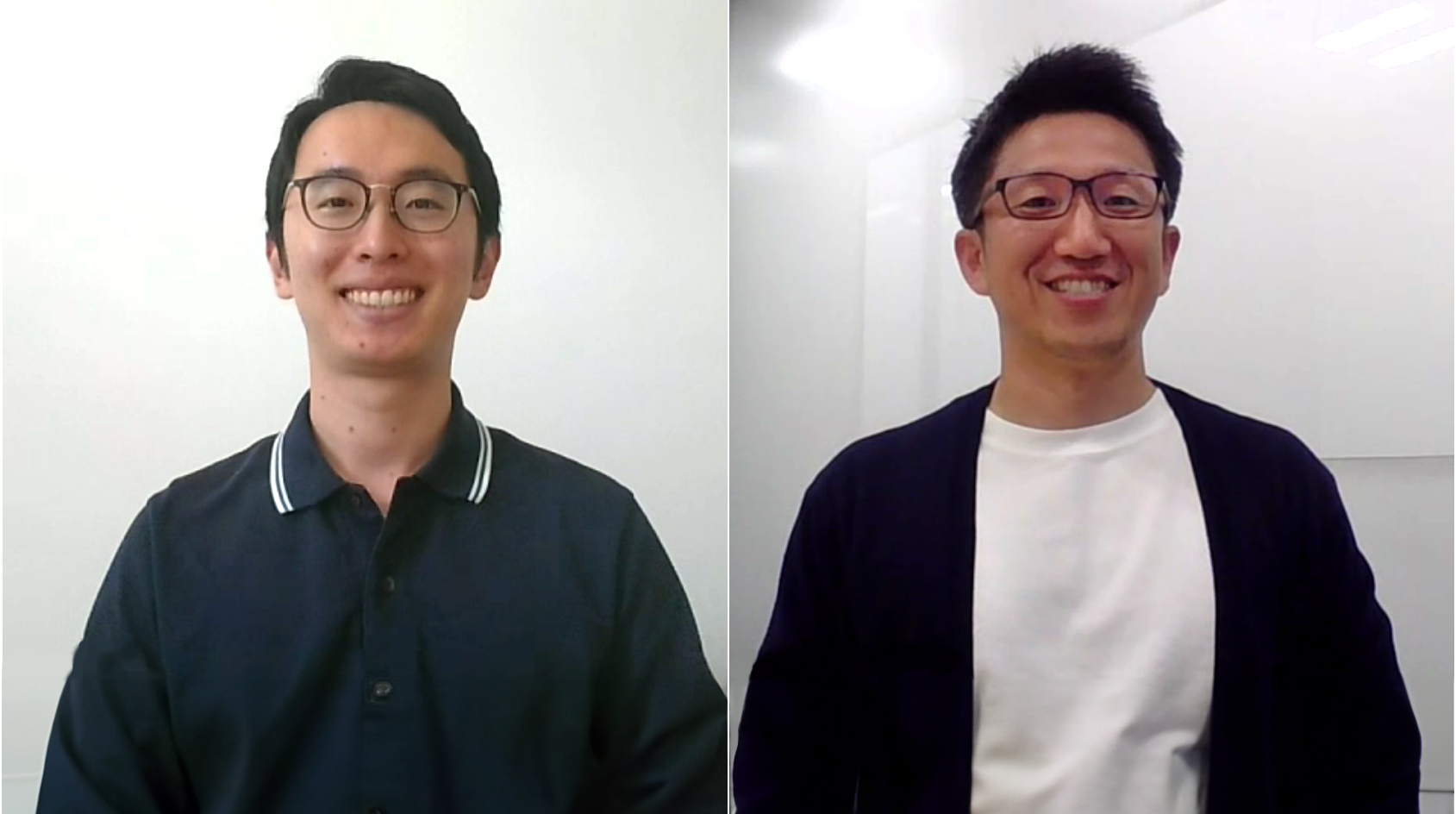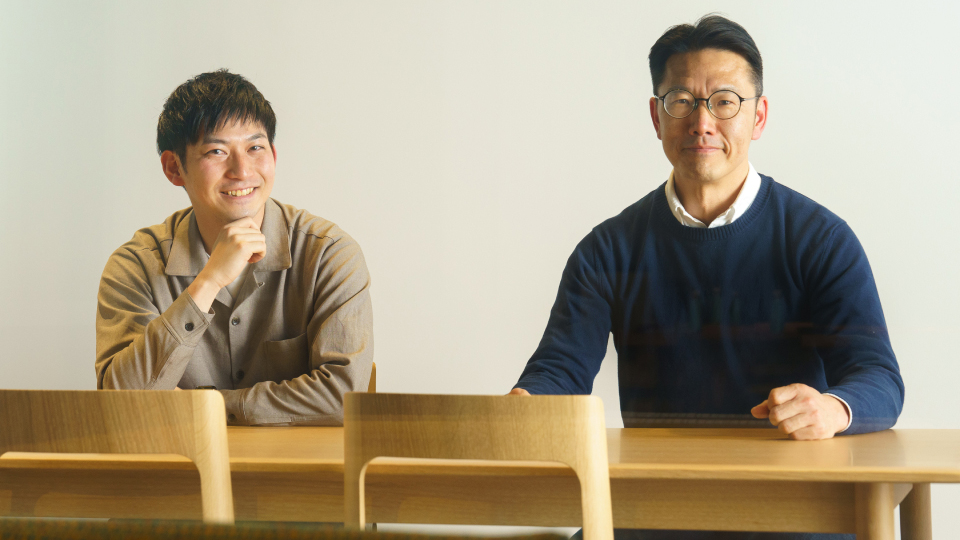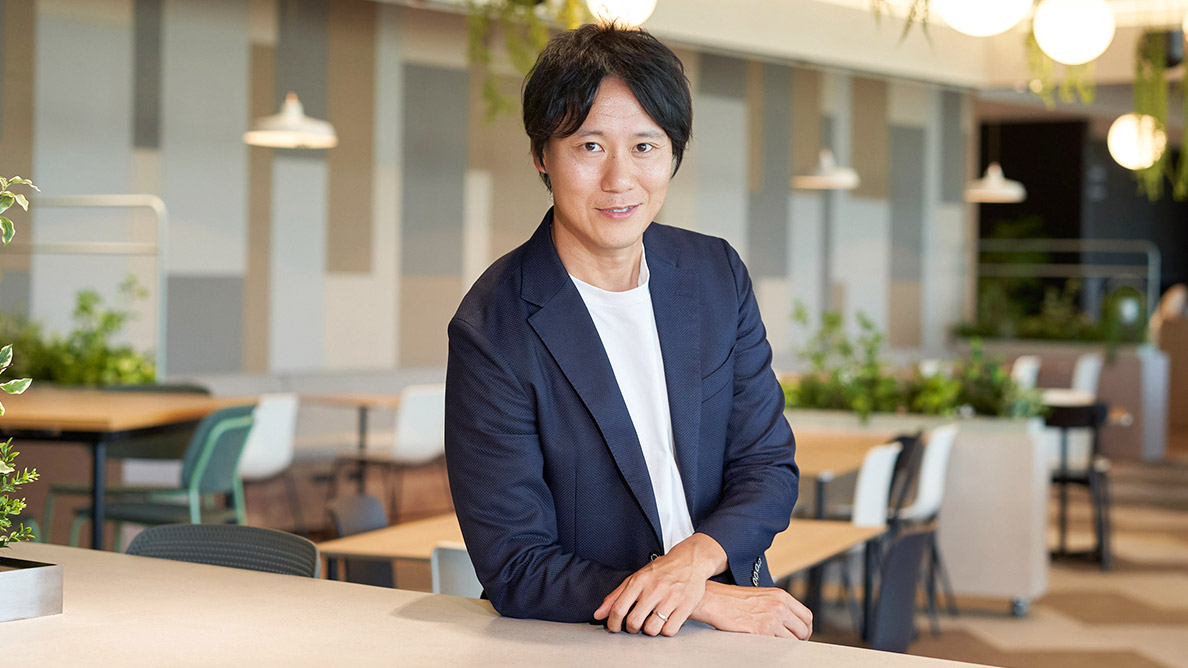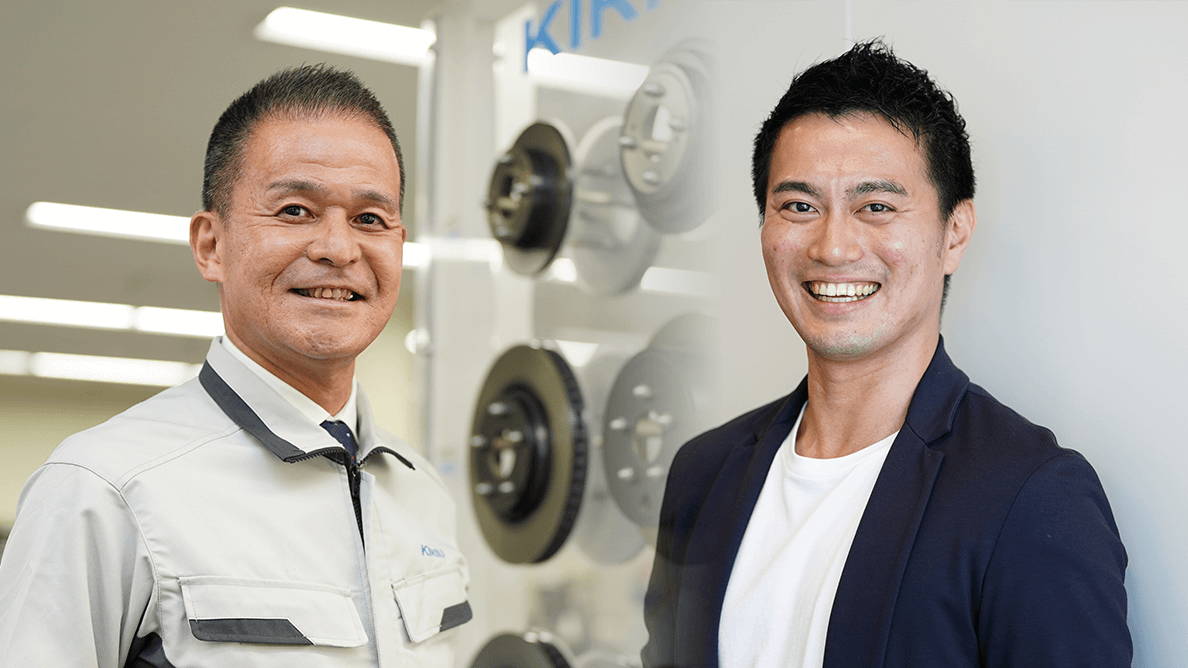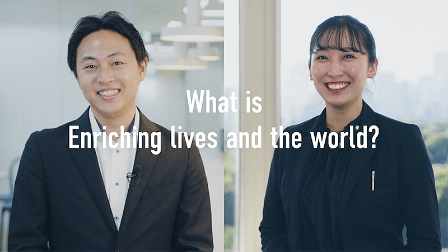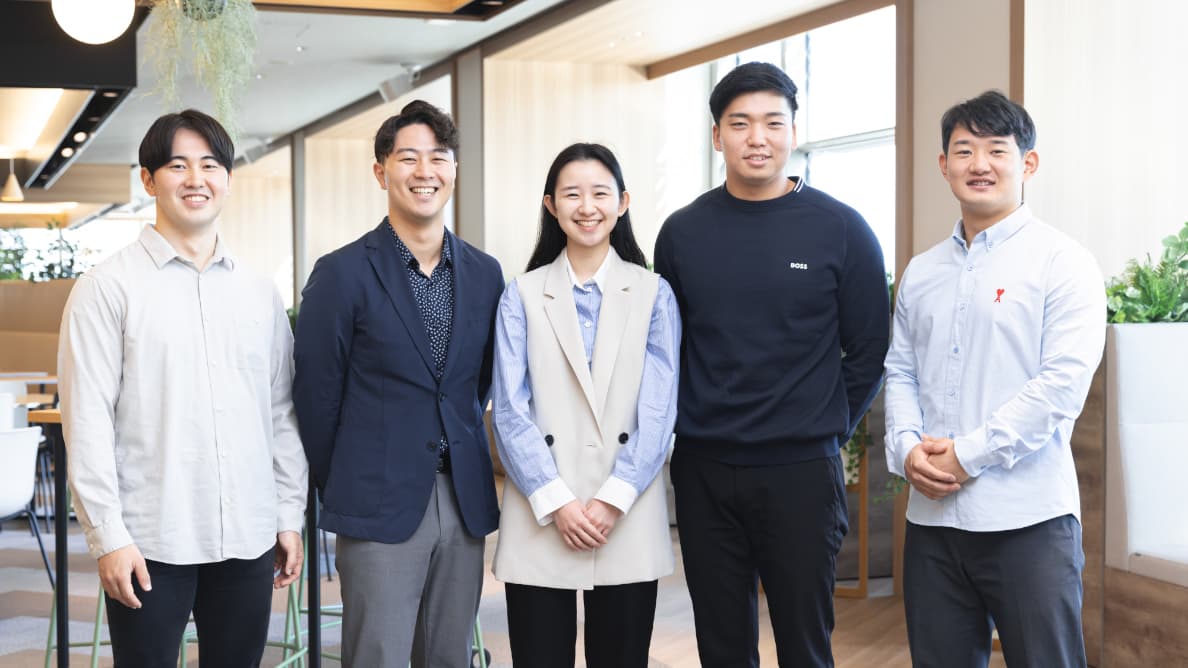
- TOP
- Enriching+TOP
- Kodomo Shokudo (Children's Cafeterias) Welcoming Everyone: Seminar Report on the Support Group "Musubie"
2025.3.11
+ (Plus)
Kodomo Shokudo (Children's Cafeterias) Welcoming Everyone: Seminar Report on the Support Group "Musubie"
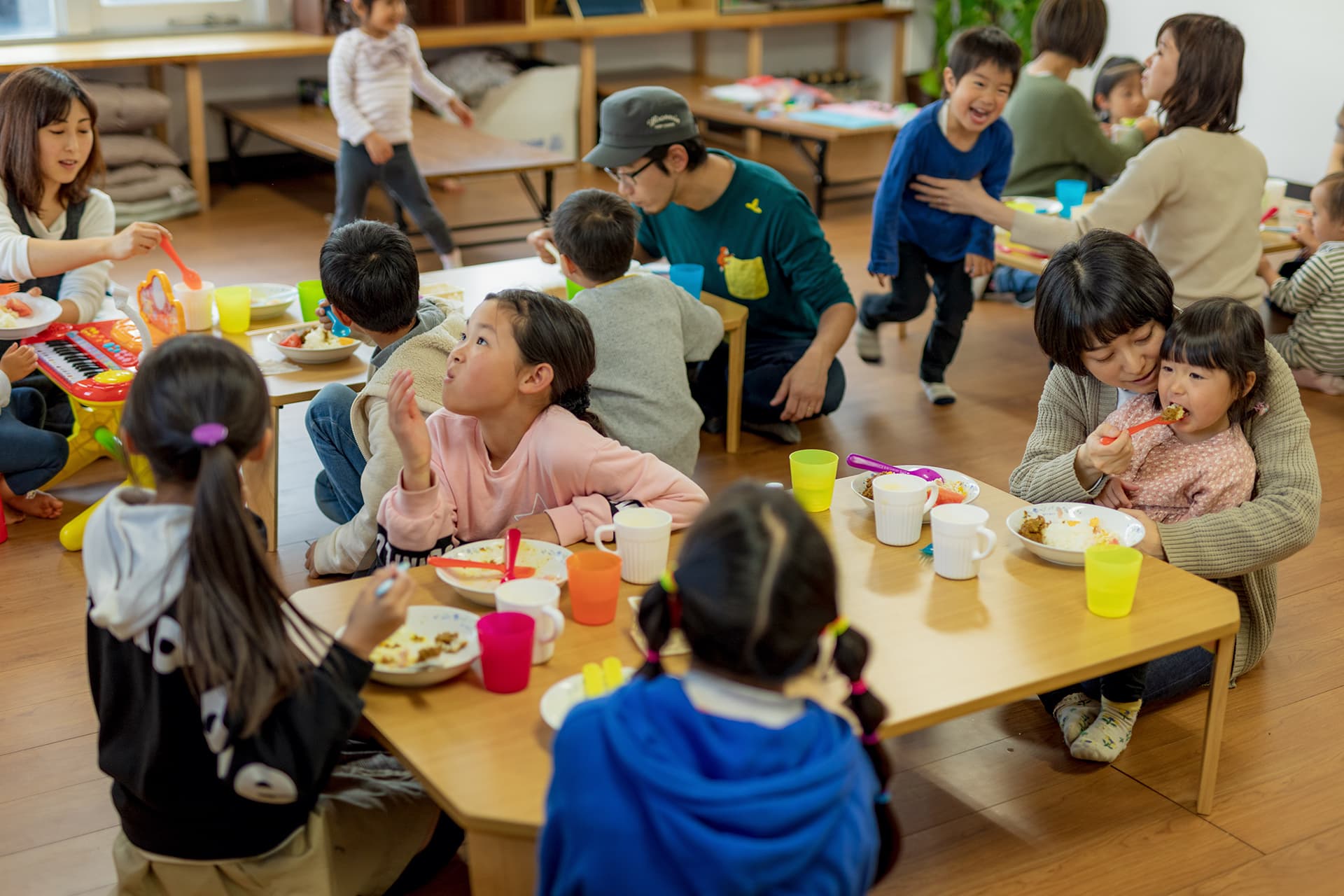
In recent years, Kodomo Shokudo (Children's Cafeterias) have gained attention for creating new bonds within local communities. The Nationwide Children's Cafeteria Support Center Musubie (a certified NPO), has been advocating for these cafeterias to go beyond just supporting children in poverty, instead highlighting their value as "places for everyone in the community." By supporting over 10,000 children's cafeteria locations nationwide, Musubie is working to create a society where no one is left behind. Today we're looking into the significance and potential of children's cafeterias based on a seminar by Musubie director Masato Shibuya, conducted as part of the 100SEED .* Sumitomo Corporation employees who visited several different children's cafeterias also shared their experiences.
*The social contribution activity program "100SEED” was launched to commemorate Sumitomo Corporation's 100th anniversary. The program led Sumitomo Corporation Group employees worldwide to initiate hands-on social contribution activities under the common theme of “education,” based on their belief that education is the foundation to solving many different social issues, looking 100 years into the future.
-

Director, Certified Nonprofit Corporation Nationwide Children's Cafeteria Support Center Musubie
Masato Shibuya
Shibuya worked at Sumitomo Corporation after graduating university. Following early retirement at the age of 50, his experiences and connections at a fundraising school became an inflection point in his life, and in October 2020, he joined Musubie. With a passion for "both helping others and being willing to receive help, and creating a society where everyone can live authentically," he focuses on avoiding conflict and preventing desertion, while pursuing facilitation that fosters collaboration. His favorite quote is: "When you want something, all the universe conspires in helping you to achieve it."

Creating Environments Where Children Thrive, Both Mentally and Physically
In October 2024, Sumitomo Corporation hosted an online seminar titled "Creating a New Tomorrow Through Kodomo Shokudo – Discover the Children's Cafeteria Initiative and Learn What We Can Do For Children." The seminar was conducted by Masato Shibuya, director at Musubie, and attended by 194 employees from the Sumitomo Corporation Group.
Musubie is a certified nonprofit corporation that supports children's cafeterias nationwide under the philosophy of "creating a society where no one is left behind." Musubie's work extends beyond supporting cafeteria operations; it offers a wide range of activities that deepen connections in local communities.
Report on Shibuya's Seminar on Children's Cafeterias: Creating a New Tomorrow, One Child at a Time
Today we're introducing Shibuya's seminar titled: "Creating a New Tomorrow Through Kodomo Shokudo – Discover the Children's Cafeteria Initiative and Learn What We Can Do For Children."
The Driving Force Behind a Movement: "Please Give Me a Hug"
Shibuya joined Sumitomo Corporation in 1991, where he worked primarily in the steel industry for 27 years before retiring early at the age of 50. The catalyst for his interest in children's cafeterias came after the loss of his partner.
"In 2008, I lost my wife to breast cancer and went to a grief support group. There, for the first time, I met mothers who had lost their husbands, who supported their families economically. I realized that while I was still okay, these mothers were really struggling, and I felt compelled to do something for them – anything at all. Afterward I saw an announcement in Sendai, where I was living, about the first children's cafeteria opening in the area. It mentioned that children from single-parent households would also come, so I thought I should volunteer," Shibuya recalls.
This is how Shibuya began to work with children's cafeterias. A particularly memorable moment that became the driving force for his involvement came from a 4-year-old child: "After volunteering, a child I had just met walked up to me and said, 'Please give me a hug.' We hadn't even played together, but the child wanted a hug. My mind flooded with thoughts. I realized the child’s profound loneliness, and I was so glad they could ask for a hug despite it. I imagined all the other children in similar situations. I also thought that before coming out, I should have hugged my own 6th-grade son at home."
Shibuya continues, "The child came back to me again – they took off their shoes and came running, asking for another hug. I realized that while I happened to be there at that moment, any adult in the same situation would happily give this child a hug. People often say that modern Japanese society has become less emotionally responsive, maybe even cold, but I don't think so. The need for warmth is still there, but the opportunities for children to ask for a hug – and for adults to respond – have perhaps been lost in a society where emotional connections are weakening."
Children's Cafeterias: "Places for Everyone in the Community"
Since the project commenced in 2012, the number of children's cafeterias has grown steadily, and there are now 10,867 locations (as of February 2025). "This is comparable to the number of middle schools in Japan. Many people will be surprised to learn the network has expanded so much in just 12 years. In 2023, 1,769 new children's cafeterias opened – a record number," Shibuya says.
He continues, "Children's cafeterias operate on different days depending on location, but weekends and holidays are common, and about 40% are also open weekday evenings. The venues are typically community association buildings, local government buildings, public spaces, and sometimes even private homes or corporate spaces."
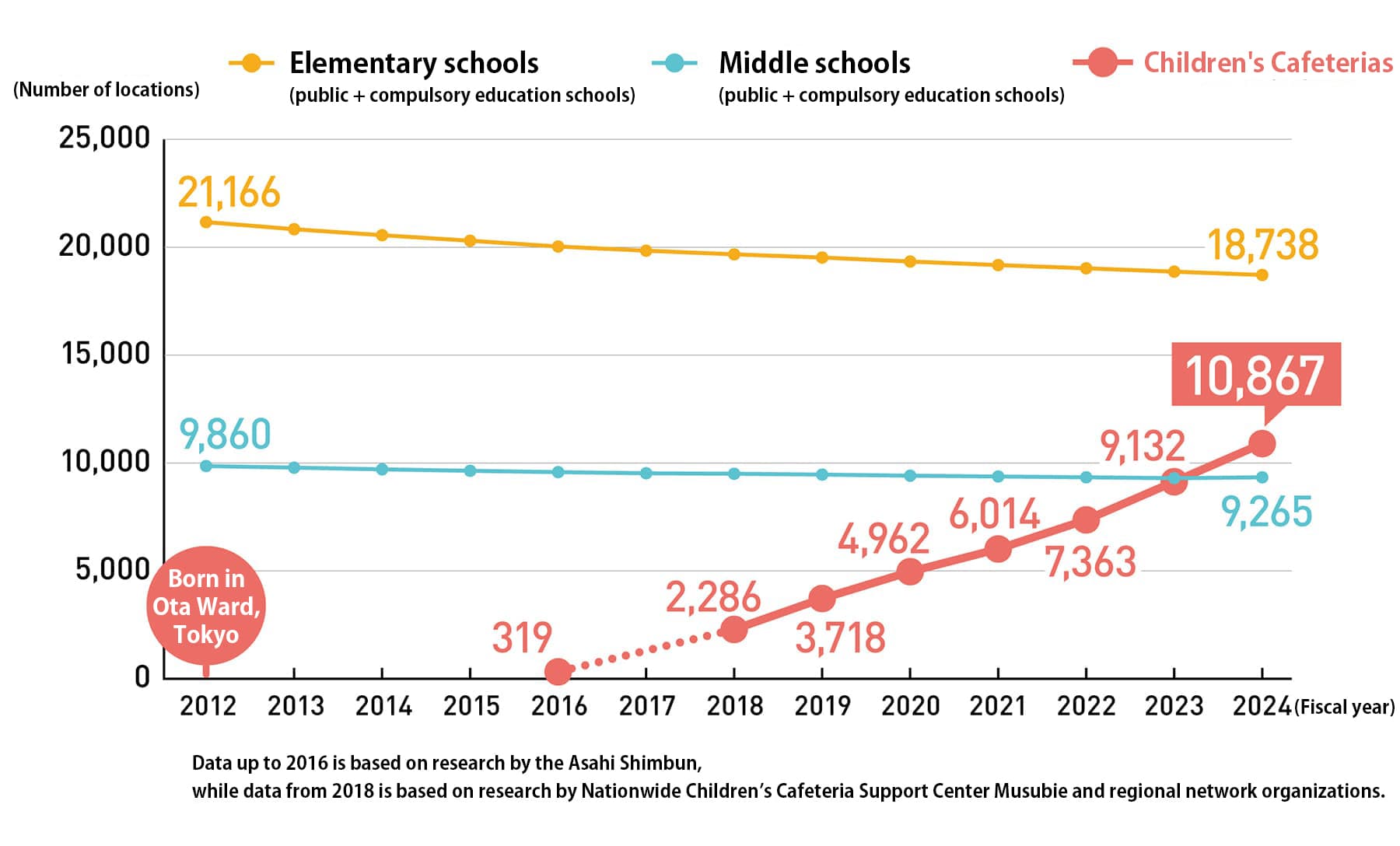
Shibuya provides further details: "Many people think that children's cafeterias are only for children from impoverished families. But this is a misconception. About 80% of children's cafeterias serve as community spaces for multi-generational exchange, centered around children. Not only children and their parents, but also elderly people living alone in the community, students interested in welfare and more. They all gather at these cafeterias, where connections are fostered through multi-generational exchange."
"Because these cafeterias are places everyone can visit, even children from families with challenging situations – marked by 'red flags' or 'yellow flags' – can come as if they're children that have been given 'green lights.' We carry out our activities with the aim of giving participants a proper understanding of this reality. Connecting people is, in many ways, just like the work of a trading company," Shibuya explains.
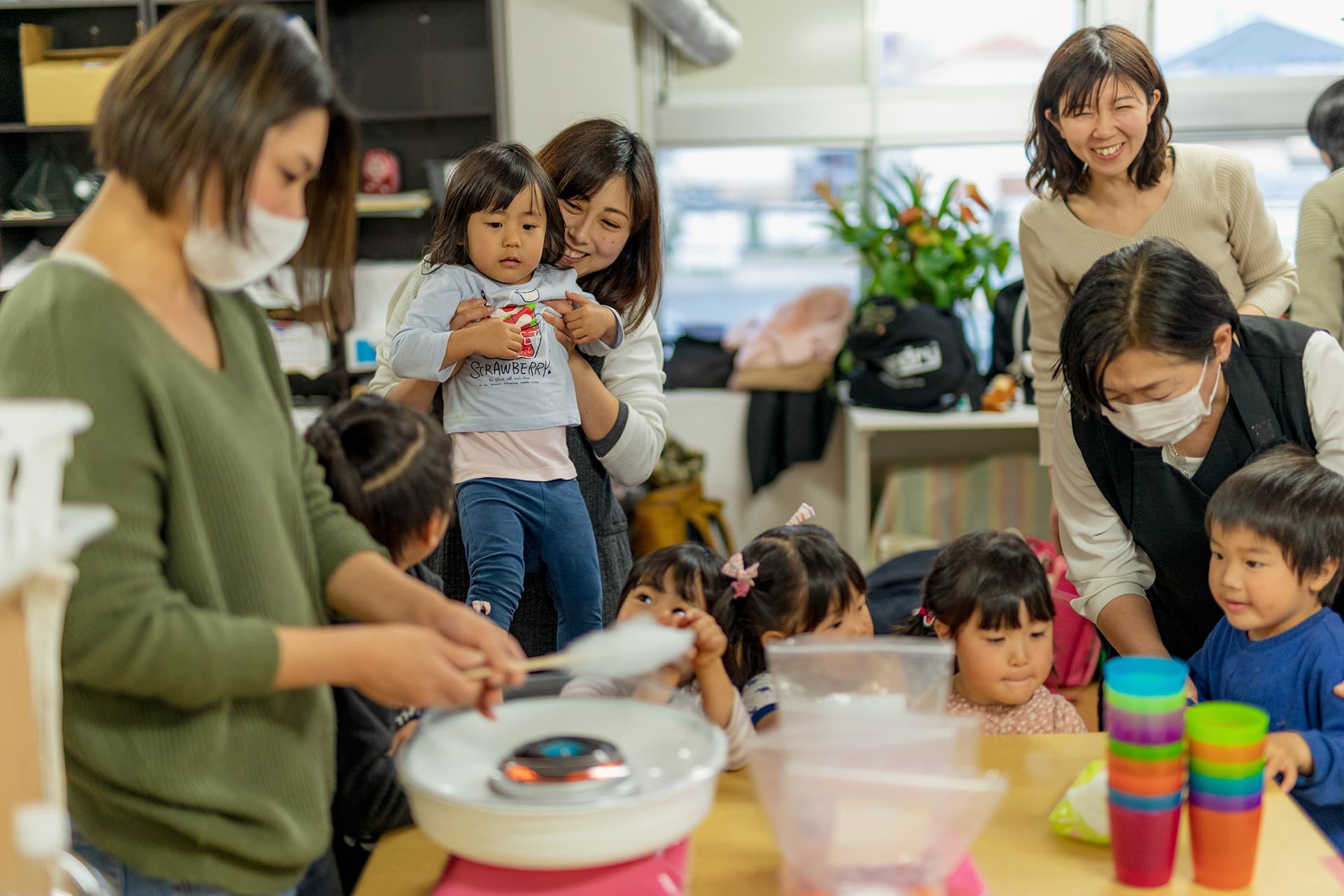
Shibuya also emphasizes that children's cafeterias serving as "community spaces" is key to their significance. "These spaces allow people to build relationships where they feel seen, accepted, respected and connected. This isn't something that others can determine – what matters is that the individual in question feels that connection," he says.
Shibuya continues, "The idea of being watched over is another key concept. Research shows that people, both adults and children, are happier when they have more places they feel watched over. Children's cafeterias offer a space where elderly people, students and others can watch over each other. One elementary school girl at a children's cafeteria was able to study for over an hour without her parents present, simply because a volunteer student was watching over her. The volunteer didn't actively teach her, they simply kept an eye on her. Her parents were amazed."

"In this way, Musubie's goal is not simply to support children's cafeterias, but to go even further. According to a survey conducted by Musubie, approximately 40% of those running children's cafeterias cited 'support for children's learning' as an aim, while about 35% mentioned 'creating a place for children to simply be and play' and 'support for elderly people and those with disabilities.' More than half pointed to 'community building and urban development.' In other words, as I mentioned earlier, the biggest goal is to create community spaces centered around children, where people from all generations can interact," Shibuya explains.
Offering further insight, he explains, "That said, it's difficult to measure clear outcomes of such community spaces, and some local governments find it hard to invest tax money in them. That's why I believe we must drive these efforts forward through the private sector. By supporting children's cafeterias as a form of infrastructure, we want to create a society where everyone has at least one place they can go to feel accepted, and ideally more. We want to build a society where no one is left behind."
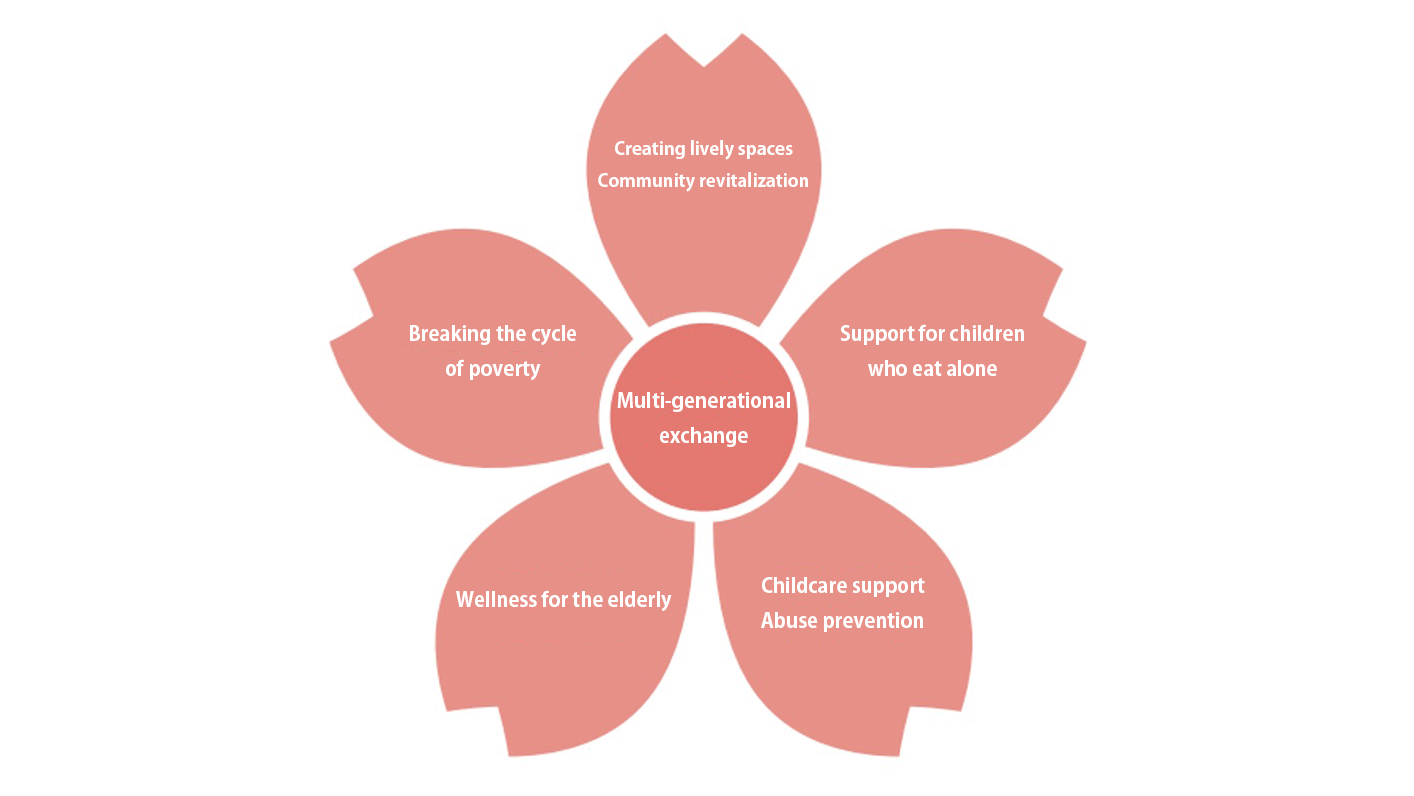
How To Get Involved in Children's Cafeterias
Shibuya provides suggestions regarding what individual participants can do to help: "First, try searching for children's cafeterias near you, using the Children's Cafeteria Map. There may be one very close to home. All kinds of people are involved in running children's cafeterias. Many of those who now participate have told me, 'It took courage to take the first step, but I couldn't just ignore these children. Before I knew it, I was signing up to help.'"
Shibuya also adds, "The largest business partners for children's cafeterias are companies and government agencies. In that sense, I believe there is a significant opportunity for Sumitomo Corporation employees to become touchpoints for raising awareness. By talking about children's cafeterias and sharing information, anyone can get involved as a volunteer or partner, donor or business collaborator. I would be delighted if more people considered how to get involved."
Spurring Action Begins With Saying "I Can't Just Ignore the Situation"
In mid-December 2024, after participating in the seminar, eight Sumitomo Corporation employees visited three different children's cafeterias. They helped with cooking, interacted with the children and local residents while eating together and watching over children's studies. It was an opportunity to experience the warm, welcoming atmosphere at each site.
Afterward, Shibuya hosted a review session with the participants, who shared comments:
"Volunteers come from a wide range of ages, from local grandmothers and grandfathers to local high school and university students, and the warm atmosphere of people watching over each other across generations was inspiring."
"I felt that children's cafeterias truly respect the individuality of local children, and they try to provide a time and place where children can be themselves."
"I would like to find a children's cafeteria near my home and continue participating."
Shibuya concludes by saying, "It's important we turn our natural feelings into actions. I truly believe the network of children's cafeterias has grown this much because of people's actions, stemming from the feeling of 'I just can't ignore the situation' of someone right in front of them."
Sumitomo Corporation's 100SEED initiative started from employees' passion to tackle challenges at hand, motivated by the belief that we cannot afford to ignore issues that will affect future generations 100 years from now. After hearing Shibuya’s story, our commitment to making the 100SEED initiative an even larger movement – one that benefits both today’s children and those of the future – has been further strengthened.

